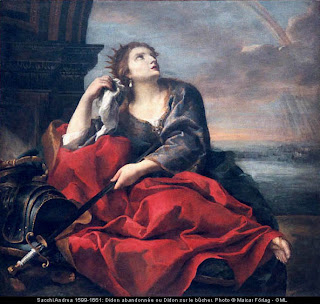Classic conceived of love as a real disease, with corresponding causes, symptoms and treatment. It is believed that among the common symptoms of this syndrome were pallor, fever, loss of appetite, agitation y. .. Yes, insomnia. This whole concept is expressed and documented, of course, literary texts, but it was not only a literary convention, but this conviction in daily life and medical science (and I mentioned this in this article ).
Today modern medicine (and especially the specialty of neurology) has been explained on a more scientific these symptoms of love. It seems the love affair raises the secretion and release in the brain of endogenous drugs, such as phenylethylamine or dopamine, which have physiological effects in the body of the lover. Specifically, the PEA is similar in effect to amphetamine, and as such is responsible for symptoms of love such as tachycardia and sweating, loss of appetite and (what concerns us here) insomnia.
Speaking of insomnia
love, I recently finished reading the book The hundred blows of the young Italian woman Melissa P. ( the novel the film is being currently ). Here the author recounts his experiences erotic-sentimental. A young man in love with her singing a serenade ( is, apparently, a traditional Sicilian song ). Here is the text:
My votu and my rivotu suspirannu,This song (slightly different version) you can see and hear in this video:
passu li notti 'senza nteri sonnu,
e li tò biddizzi vaju cuntimplannu,
tipenzu of fine to jornu notti. Pi
non pozzu n'ura ripusari aunt, non havi chiu paci
st'afflittu cori. Lu
vo quannu Sapirie t'aju to lassari? Quannu
finisci e la vita mia mori.
round and round I sighed,
step up all night, staring at your beauty
,
think of you in the overnight.
For you I can not stand even a moment, I have no
serenity, so sad that the heart is.
Want to know when you leave?:
When my life is over and die.
In Greco-Roman classical literature is documented very often the topic of insomnia, love, and from Homer. But the central passage significant (in itself, and the subsequent impact it has had) and that moves me most to me is a famous text of Book IV of the Aeneid . Carthaginian queen Dido, in love with Trojan prince Aeneas, aware of the intention of the hero is abandoned, and reveals the anguish of love. Note the contrast between the calmness of the environment and the unhappy love insomnia ( Aeneid 4522-532):
Nox erat et placidum carpebant soporem
corpora fess per terras, et saeua quierant siluaeque
Aequor, cum half considers uoluuntur lapsu,
cum tacet omnis ager, pecudes pictaeque uolucres, 525
quaeque lacus liquids late quaeque aspera Dumisa rural
Tenent, sleepiness positae sub nocte silentio.
at non infelix Phoenissa animi, neque umquam soluitur in sleepiness
529 aut pectore noctem oculisue
530 Accipiter: ingeminant curiae rursusque resurgens
saeuit magnoque love irarum fluctuat aestu.
was night and people, exhausted by
enjoyed pleasant dream land, forests and rough seas at rest,
when stars glide through half its orbit, (525)
silent when the entire field, livestock and colorful birds, animals
living in clear lakes in its entirety
and fields bristling with thorns, lying in the silent night. (529)
In contrast, the Phoenicians, unhappy in his heart, never (530)
gives his eyes to sleep or receives the night in his chest
their troubles grow and love, back again, and fluctuates
rages in the huge waves of his wrath.

Sachi Andrea (1599-1661): Dido abandonée Didon ou sur le crop.
Greetings, and happy dreams (or insomnia).